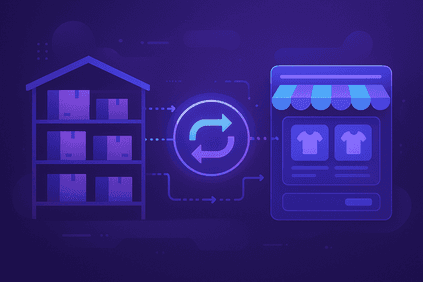Multi-Warehouse Tax Compliance Made Simple with Medusa and Avalara

Opening a second warehouse should simplify fulfillment, reduce shipping times, and lower costs. Instead, it often creates a tax compliance nightmare that most e-commerce platforms aren't designed to handle.
The Multi-Warehouse Tax Problem
Tax calculation seems straightforward: charge tax based on where the customer is. But several US states use origin-based taxation, where the warehouse location matters, not just the customer's address. Ship from California to Texas? Different calculation than shipping from your Texas warehouse.
It gets more complex:
- Split shipments from multiple warehouses require separate tax calculations
- Returns to different locations than original shipment create reconciliation challenges
- Marketplace facilitator laws change who's responsible for collection based on fulfillment location
- International warehouses introduce VAT and customs considerations
Manual management doesn't scale. Your team can handle two warehouses with spreadsheets and careful accounting. At five warehouses across different states and countries, it becomes impossible without automation.
Medusa's Multi-Warehouse Foundation
Medusa was built for distributed commerce from the ground up. Its architecture natively supports:
- Multiple inventory locations - Track stock across unlimited warehouses, stores, and fulfillment centers
- Location-based fulfillment - Route orders to the optimal warehouse based on inventory, proximity, or custom rules
- Split shipments - Automatically divide orders across locations when items aren't available in a single warehouse
- Flexible shipping options - Configure different carriers, rates, and methods per location
- Stock allocation strategies - Control which locations fulfill which orders with customizable logic
This foundation makes multi-warehouse operations possible. But it creates a new challenge: calculating tax correctly for every possible fulfillment scenario.
Intelligent Tax Automation
Avalara completes the picture by handling the tax complexity that comes with distributed fulfillment. The integration connects Medusa's fulfillment data with Avalara's tax engine:
- Calculates tax correctly based on actual fulfillment warehouse location
- Handles split shipments with multiple origins automatically, applying different rules per origin
- Adjusts for marketplace facilitator rules by location
- Manages returns and exchanges with proper tax reconciliation
- Scales to unlimited warehouse locations without configuration overhead
When Medusa routes an order to your California warehouse, Avalara applies California's origin-based rules. When the same product ships from Texas, it uses Texas rules automatically.
The Platform Advantage
Medusa's API-first architecture means warehouse management systems, ERPs, and fulfillment tools integrate cleanly. Each component has access to the same real-time data:
- Your WMS updates inventory across all locations
- Medusa's fulfillment logic determines the optimal warehouse
- Avalara calculates tax based on the actual fulfillment location
- Your ERP receives accurate tax data for accounting
No manual coordination between systems. No batch processes that create sync delays. Tax calculations happen in real-time using actual fulfillment data, not estimates.
This matters for business decisions too. When evaluating new warehouse locations, you can model the tax implications accurately. Medusa's multi-location support means you can run test scenarios with different fulfillment strategies, and Avalara shows you exactly how different states' rules affect your total cost structure.
Growth-Ready Infrastructure
Multi-warehouse operations shouldn't mean multi-warehouse complexity. With Medusa and Avalara working together, expansion is straightforward:
- Add a new location in Medusa with its inventory and fulfillment rules
- Configure the physical address and shipping options
- Avalara automatically begins applying the correct tax rules for that jurisdiction
No additional compliance burden. No manual tax configuration. Whether you're adding your second warehouse or your twentieth, the process stays the same.
Medusa's flexibility also means you can experiment with different fulfillment models - dropshipping from vendors, third-party logistics providers, retail store fulfillment - while maintaining consistent, accurate tax calculations across every scenario.
Your infrastructure grows with your business, not your complexity.
Need help with Avalara integration?
Looking to implement automated tax compliance with Avalara in your Medusa store? u11d specializes in e-commerce integrations and tax automation solutions. We can help you set up, customize, and optimize your Avalara integration for maximum compliance and efficiency. Our team has extensive experience with both Medusa e-commerce platforms and Avalara tax systems, ensuring seamless integration that meets your specific business requirements.





